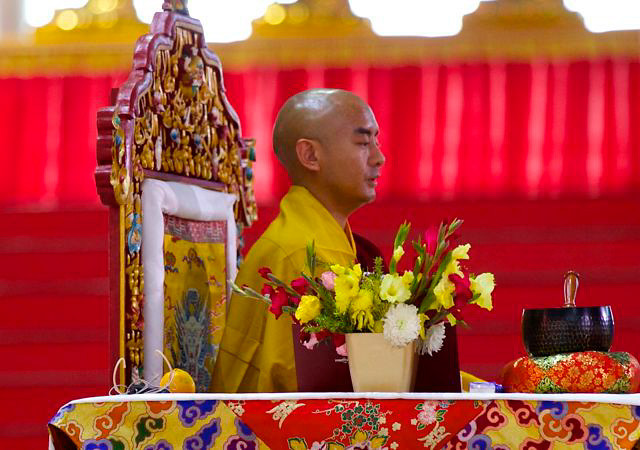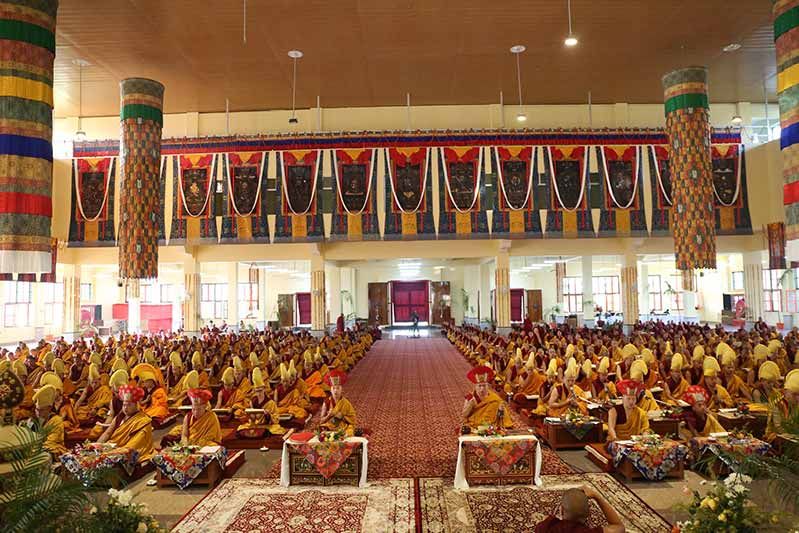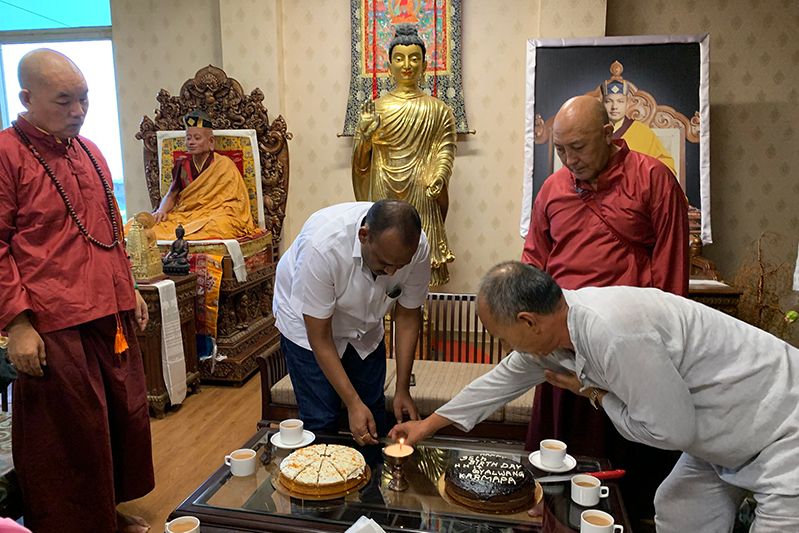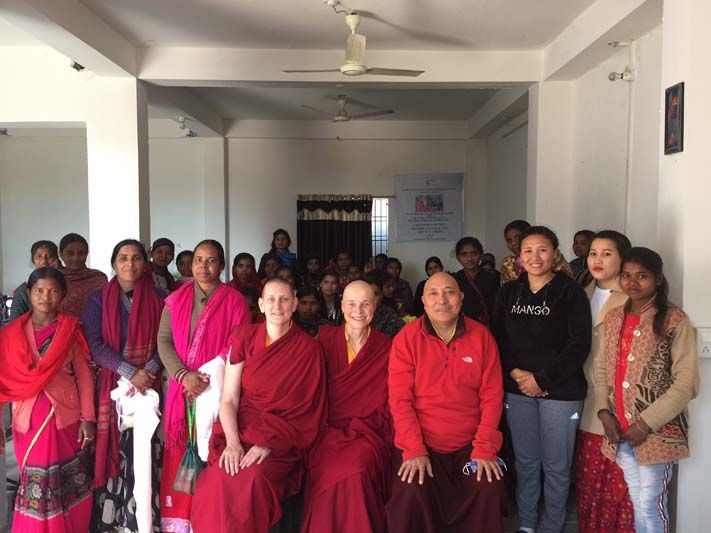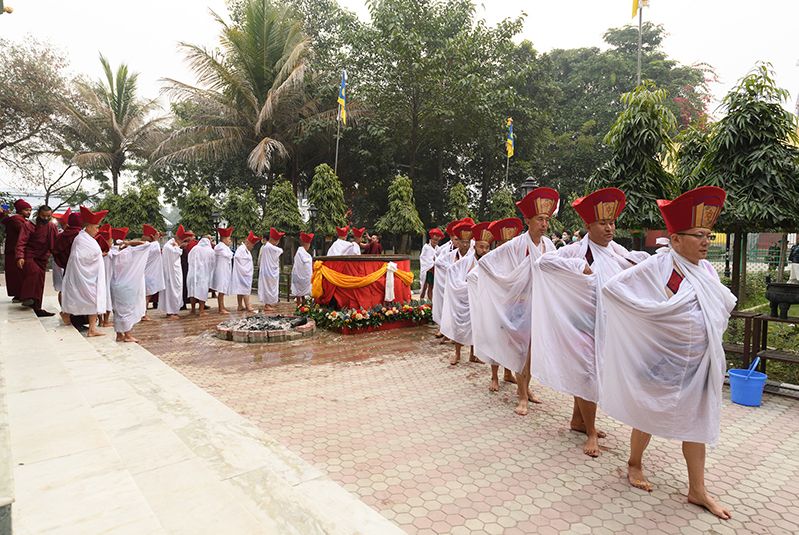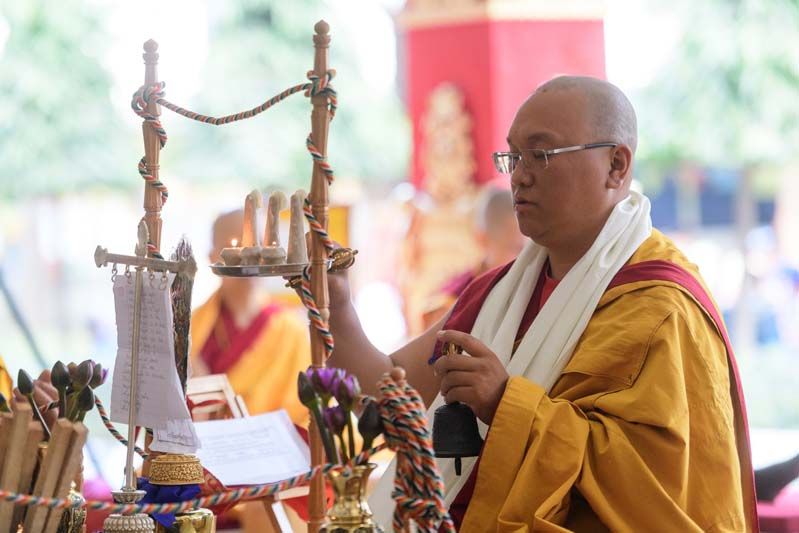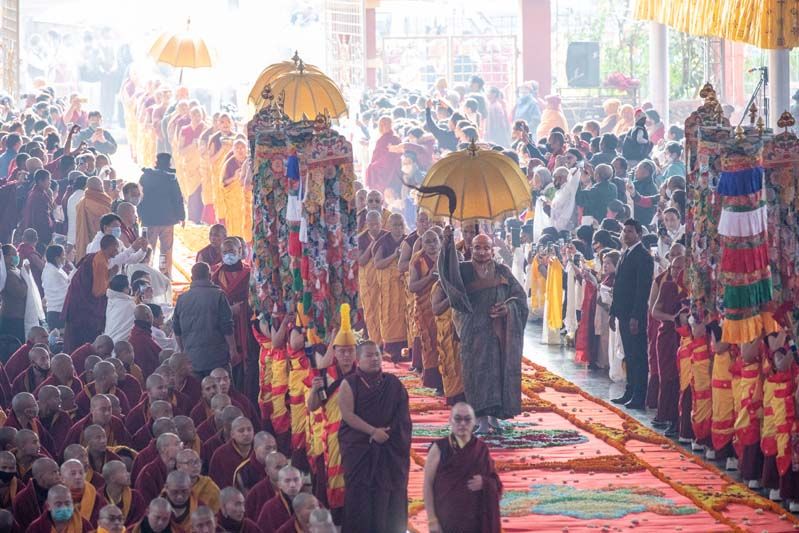Aspiration of Mahāmudrā: Meditation Day 2: Cultivating Awareness
- February 23, 2018
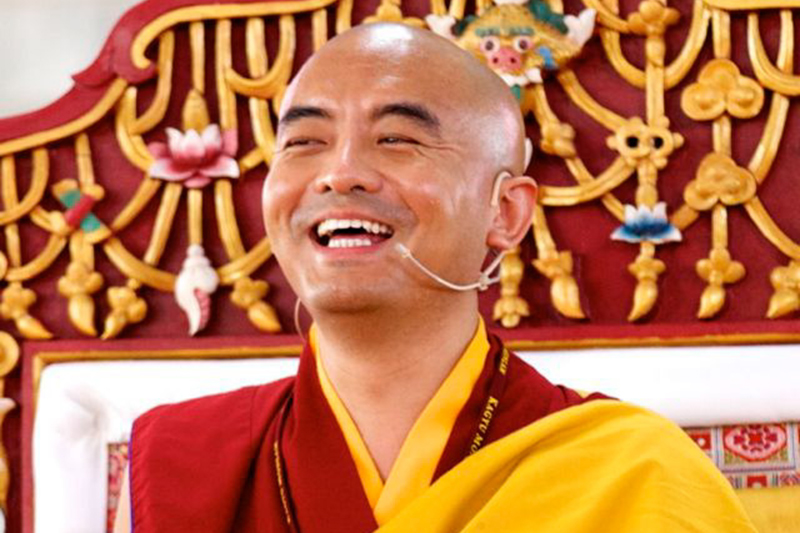
Mingyur Rinpoche’s second session emphasized what it is to be aware and how to cultivate being aware. He began with a request, “Please raise the attitude of bodhichitta to listen to these teachings. As I mentioned yesterday, if we want to practice the essence of the 84,000 dharma teachings, we begin with going for refuge and arousing bodhichitta.”
To arouse bodhichitta, we need to develop loving-kindness and compassion. This is accomplished in several ways such as recognizing our parents and being grateful to them and exchanging ourselves with others. Leading us into a meditation on loving-kindness and compassion, he said, “First identify someone you easily feel loving-kindness and compassion towards.” Mingyur Rinpoche gave a personal example. When he was younger, he meditated on his grandmother who was short and always had a smile. “The key,” he continued, “is to think that individual is just like me and wants to be without suffering; then, in this way we mediate on loving-kindness and compassion.” As the meditation continued, he expanded this, “Now think of someone else and then all sentient beings throughout space. May they all have happiness and the causes of happiness. May they be free from suffering and the causes of suffering. If you can think like this, this is loving-kindness.”
He shifted the focus to increasing the strength of our awareness, noting that a single object such as the breath or sound can act as a support. “When we recognize that we have the motivation to meditate, it doesn’t matter what the mind is resting on,” he clarified, and then moved on to awareness.
Awareness is like the sky. Clouds might gather in the sky as well as wind and lightening and hail, but it does not affect the sky at all. The sky might be clear blue and have rainbows, but that doesn’t make the sky any better. It all occurs within the expanse of the sky. Likewise, awareness is just knowing and if a good thought happens, that’s fine. If a good feeling happens, that’s fine. If an unpleasant feeling happens, that’s fine; and, if a neutral feeling happens that’s fine. If you feel tight, that’s fine. If you feel loose, that’s fine. It is all like clouds in the sky. Even if those clouds stay in the sky for a long time, it does not affect the sky.
In order to cultivate awareness, you rest within whatever thoughts, afflictions, or appearances arise and they become part of your meditation. When you are able to rest within – whether gentle experiences of bliss or clarity or rough experiences of pain or dullness – it becomes an aid for awareness.
Building upon Goshir Gyaltsap Rinpoche’s teachings, Mingyur Rinpoche turned to a verse from The Aspiration of the Māhamudrā of Definitive Meaning which teaches all the points of shamatha.
Not sullied by the meditation that is conceptual effort,
Not stirred by the wind of ordinary distractions,
May we know how to rest naturally and freely, not altering.
May we be skilled in and sustain the practice of the mind. (p.356 Kagyu Monlam Book)
This verse emphasizes the whole way of resting within – “don’t meditate, don’t wander, don’t fabricate.” Rinpoche explained, “We might think to ourselves, why is this saying ‘don’t meditate’? But when we do shamatha, we do not need to do anything. In shamatha and māhamudrā, we rest with whatever occurs in our mind without altering it.” The key is not to let the mind wander which means developing non-distraction. This is just looking and being aware. He gave a clear analogy: “A shepherd brings his flock up into the hills, he sits down and lets the sheep go wherever they go. He watches whatever they do.”
Lastly, we do not need to fabricate or change anything. We have so many afflictions, but because we are not aware, we fall under their control. Mingyur Rinpoche said, “It’s like a rushing, raging river, if you fall into it, the water will carry you away. When you can see the river, you are not in it. Likewise, with our thoughts and afflictions, if we view them and do not fall under their control, they do not harm us.” Whatever afflictions – greed, hatred, delusion – arise in our mind, we aim to look and see them without falling under their control. The main point is that we are able to direct our attention and cultivate this awareness.
Mingyur Rinpoche next introduced a technique focused on pain. He smilingly asked, “Do you have any unpleasant feelings?” Hands went up throughout the pavilion. For those few who did not have any unpleasant feelings, he instructed to squeeze the soft flesh on the hand between the thumb and forefinger. “Direct your attention towards any feeling of pain in your body and if you don’t feel anything, squeeze your finger on that spot and direct your attention towards it.” He concluded the meditation explaining that unpleasant feelings can also be aids to meditation.
The last guided practice entailed paying attention to whatever appears in the mind. “Please close your eyes,” he said. “Now, as you close them, whatever feeling happens for you, direct your attention towards it.” Whether a feeling of dullness, a foggy torpor or vivid clearness, just rest in it. “Just look at the sensation,” he encouraged.
“We need to recognize awareness and develop confidence in the awareness of our meditation,” he concluded.
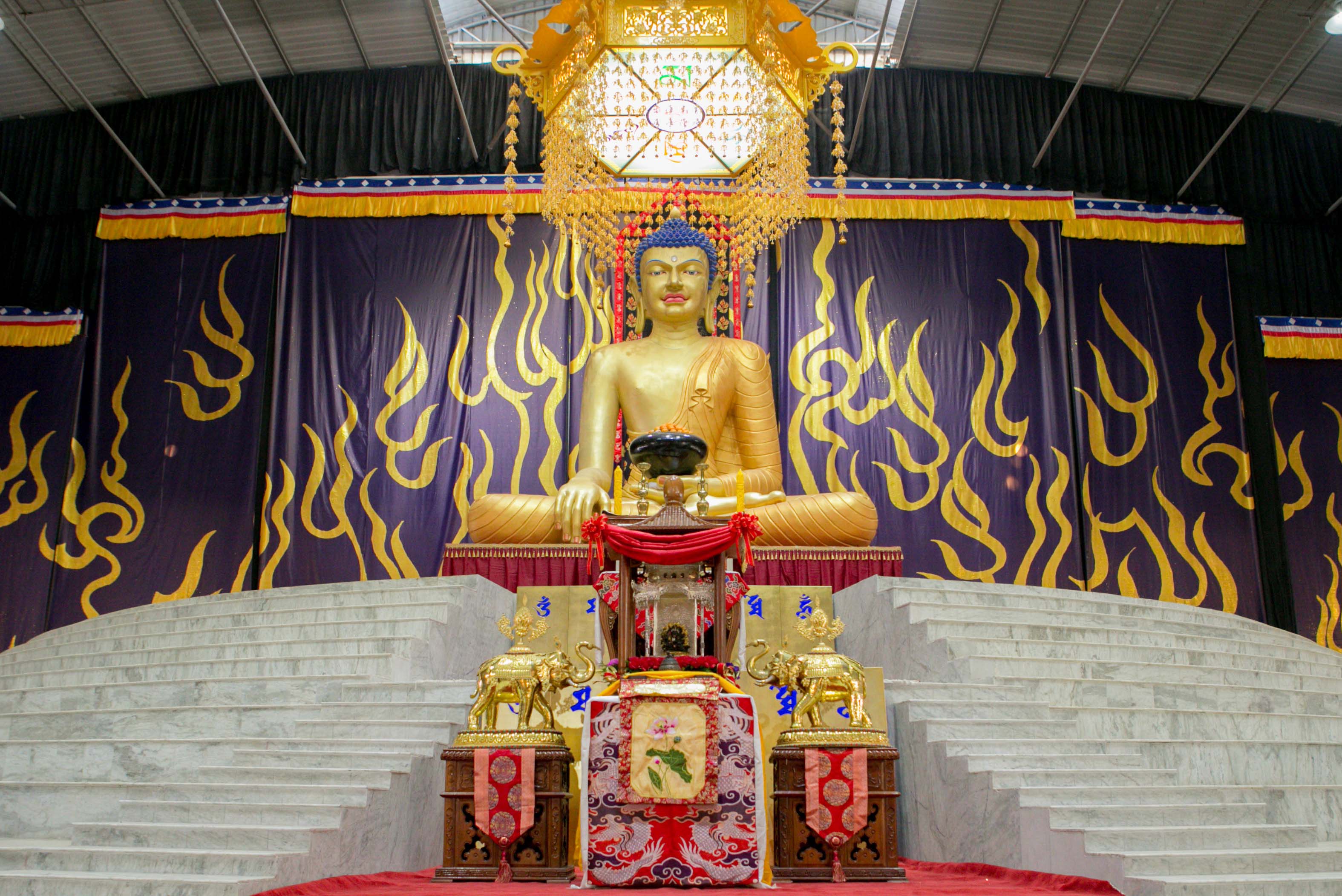
37th Kagyu Monlam Schedule
Tibetan / English / Chinese • French • German • Indonesian • Korean • Polish • Russian • Spanish • Vietnamese
Dharma Teachings
 Meditation Instructions
Meditation Instructions
Recorded during the 37th Kagyu Monlam, Bodhgaya, India. January 28-30, 2020.
